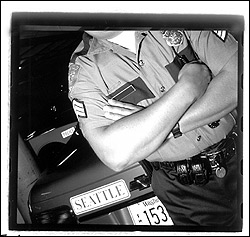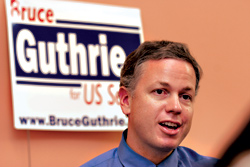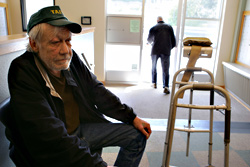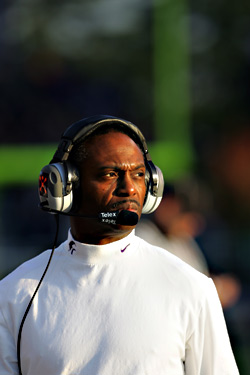When you call 911 to report a crime, you expect a cop to show up, pronto. If it’s a violent crime, the cavalry will show up without fail. If it’s a burglary, say, or mugging, the response is spottier. Patrol cops will tell you they are stretched too far to respond to crimes like these, much less do the kind of regular rolling patrols through trouble spots that deter crime in the first place.
The Seattle Police Officers Guild, and progressive City Council members and community activists—not often in the cops’ corner—are talking about this problem. But with 2005 city revenue expected to fall short by about $20 million (the Seattle Police Department is expecting to have to lay off 19 administrative staffers next year), there’s no solution in sight.
The problem, says union president Sgt. Kevin Haistings, is that there simply aren’t enough patrol cops to get the job done. By his count, there are about 500 officers assigned to patrol the streets and answer 911 calls; Seattle’s estimated 2004 population is 572,600. Contrast that with 1973, when, according to SPD reports, there were 573 officers on patrol; in 1970, the city’s population was 530,831. “How can anyone argue that this isn’t an issue?” says Haistings.
SPD officials dispute the union’s numbers. Deputy Police Chief John Diaz says there are about 700 officers on patrol in the city and that the force is meeting its standards for response time. The union, police brass, and the city have repeatedly butted heads over what constitutes a patrol officer. The union argues that if a cop isn’t pulling down patrol duty in a car answering 911 calls, then he or she isn’t a patrol cop. Traffic cops and cops assigned to anticrime teams (most of whom chase the drug trade) don’t count. SPD says that cops assigned to those duties can be pulled off and put back on patrol at the discretion of a precinct commander, so they are patrol cops.
Diaz, however, doesn’t dispute that no matter the number of cops on the streets, there is a real staffing problem. “What we are not doing a great job at is property crime and quality-of-life crime,” he says. It’s the same point Seattle Police Chief Gil Kerlikowske has repeated publicly over the past year, as well.
No matter how you define a patrol cop, the officers who shape up at roll call and wheel onto the streets are a vanishing species. Haistings points to recent nights when, for example, there were only three officers on patrol in the northern end of the Rainier Valley on a Friday night, in a district that runs from Lake Washington to Interstate 5. Recently, too, there were only two officers on the graveyard shift in the West Precinct’s “King” sector, which covers the south end of downtown, Pioneer Square, and runs south to Spokane Street. A big chunk of turf with crime aplenty. You hear similar reports from cops all over the city— not enough cops, worries about getting prompt cover, concerns about being so overextended and being slated to handle so many 911 calls that they barely have time to think straight.
Haistings says things have gotten to the point where frustrated officers—their frustration doubled by the lack of a new labor pact with the city—are leaving SPD for other agencies in the Puget Sound region. Five officers, says the union boss, are about to join the Lakewood police.
Earlier this year, City Council member Nick Licata, who chairs the council’s public safety committee, tried to round up support for a public safety levy that would put perhaps 50 more officers on the street. His idea had about as much traction as a recap tire with fellow council members, who either didn’t see cop staffing as a priority or didn’t want to test the public’s tolerance so soon after a fire levy was approved and as a levy for children and families awaited a vote last month (it passed). Mayor Greg Nickels wasn’t much help, either, says Licata. His proposal would have raised $36 million over four years for police, fire, and human services. SPD would have received $3 million more a year.
Licata says the current level of patrol staffing, regardless of whose numbers prove out, reduces quality service to the public and pushes cops to the limit. He says he will float the public safety levy idea again.








